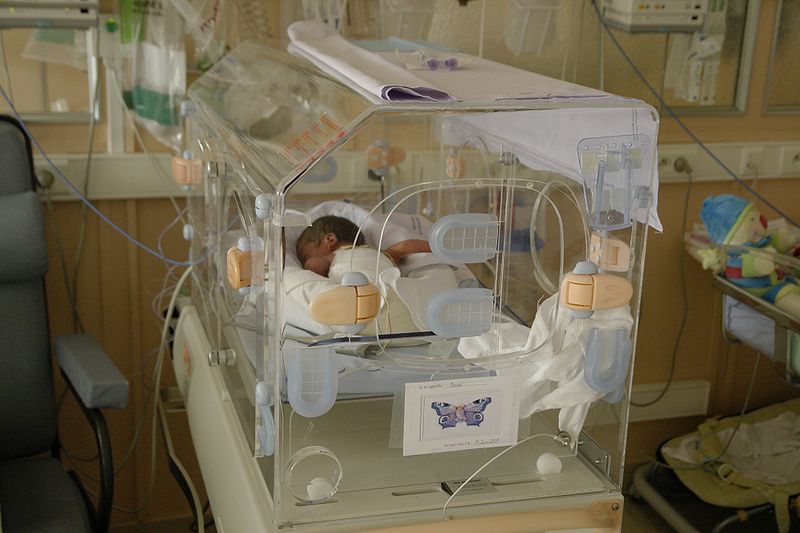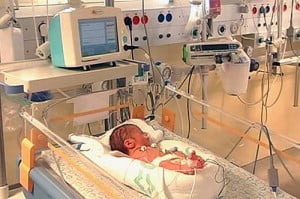Israeli researchers from the Technion and Carmel Medical Center have developed a unique device to monitor respiratory problems in premature infants.
The device immediately detects the development of respiratory deterioration and helps to characterize it, before the onset of distress that may lead to serious and irreversible injury to the premature babies. Thus, it provides early-stage treatment and prevents complications.
Related Stories:
Pregnant? Stress Could Be Good For Your Child
Computer Program That Could Prevent Sudden Infant Death Syndrome
The researchers, Dr. Dan Waisman from the Technion‘s Rappaport Faculty of Medicine and Carmel Medical Center and Prof. Amir Landesberg of the Technion’s Faculty of Biomedical Engineering, say that the device, called the Pneumonitor, continuously and systematically monitors the dynamics of premature babies’ breathing.
The device was tested successfully on mice, rats and rabbits in different disease models. “We simulated common conditions that occur in premature babies in the Neonatal Intensive Care Unit, as well as an animal model for asthma and compared the operation of our device to that of competing devices,” they explain. “We also tried the device in 63 cases in Carmel, Bnai Zion and Rambam Medical Centers.”
Avoiding fatal complications
According to the researchers, it has been reported that 45 percent of life-threatening situations that occur in a Neonatal Pediatric Intensive Care Unit go undetected by monitoring devices currently used and are detected only by staff visual inspection of their patients. Even when the devices do detect a problem, the patient is often already in distress and can develop serious complications. It then still remains for the doctor to identify the cause of the problem.
Sign up for our free weekly newsletter
SubscribeThe Pneumonitor has three miniature motion sensors that are attached to the infant on both sides of the chest and the upper abdomen. When respiratory deterioration is detected, the device signals an alarm before the onset of distress, and provides information that can assist in the diagnosis of the nature and location of the problem. The motion sensors quantify the breathing effort and the symmetry of lung ventilation. The device displays data on the respiratory conditions and indicates changes in the level of ventilation.
The Technion reports that approximately 10 percent of all births worldwide are preterm and an additional 10 percent of full-term babies suffer complications and require tight respiratory supervision. Moreover, 15 percent of premature babies born under 1,500 grams do not survive and an additional 15 percent suffer from serious complications such as mental handicaps, hearing and visual problems and chronic lung disease.
A significant number of these complications are related to respiratory management and care, the researchers say, making early identification of respiratory distress in premature babies crucial.
The results of the research were recently published in the Journal of Intensive Care Medicine. The Technion has registered a patent for the device and has set up a company called Pneumedicare, located in Yokne’am, Israel, and managed by Dr. Carmit Levy, who received her Ph.D. from the Technion’s Department of Biomedical Engineering. The device is now ready for FDA review.
Photo by Yann
Related posts

Israeli Medical Technologies That Could Change The World

Harnessing Our Own Bodies For Side Effect-Free Weight Loss

Missing Protein Could Unlock Treatment For Aggressive Lung Cancer





Facebook comments